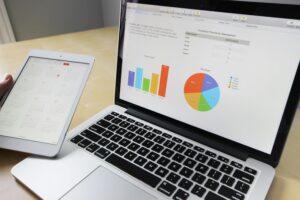Outbound sales is a type of sales strategy where a company proactively reaches out to potential customers to generate new business. This approach involves contacting leads through phone calls, emails, social media, and other channels to pitch products or services. Inbound sales involves responding to customers who have already expressed interest whereas outbound sales focuses on finding new customers.
For B2B companies, outbound sales is particularly important as it allows them to expand their customer base and generate new revenue streams. One unique quality of outbound sales for B2B companies is the need for personalized outreach. B2B sales typically involve a longer sales cycle and a higher price point than B2C (business-to-consumer) sales. Therefore, B2B companies need to establish a relationship with their prospects and understand their needs and pain points. Outbound sales software can help B2B companies personalize their outreach and messaging to increase the likelihood of conversion.
Another unique quality of B2B outbound sales is the importance of account-based selling. Unlike B2C sales, where the focus is on selling to individuals, B2B sales often involve selling to entire organizations. Outbound sales software can help B2B companies identify key decision-makers within an organization and target them with personalized outreach. However, B2B outbound sales is a complex process that requires a combination of strategy, skill, and technology. This is where outbound sales software comes in.
Field Sales Software
Field sales is a type of sales strategy where sales representatives or account executives physically travel to meet with potential or existing clients in-person to sell products or services. For B2B (business-to-business) companies, field sales can be an effective way to establish personal relationships, address complex needs and concerns, and close high-value deals. To support their field sales teams, B2B companies often invest in tools and technologies such as customer relationship management (CRM) software, sales automation software, and mobile sales applications. These tools can help sales representatives and account executives manage their contacts, track their progress through the sales cycle, and access critical information while on the go.
Many B2B companies use in-person events for their outbound sales strategies, including trade shows, summits, and conferences. Research shows it takes an average of 11 days to get a lead from an in-person event. Oftentimes, potential leads are overwhelmed with information and contacts at events. By the time a sales representative contacts them the potential customer has forgotten about the company altogether.
Zach Barney, Co-founder of Mobly, shared that “only 6% of executives feel their field events are meeting company goals. They will spend 1/3 of their marketing budget on them in 2023.” Barney is developing Mobly, an app that allows for users to either easily search by name and company name, or take a photo of contact cards. Mobly automatically enriches and pushes the contact into the user’s CRM for follow up. By enrolling contacts into campaigns while at events, companies can cut out the ‘time-to-lead’ from in person events entirely! Mobly is launching Mid-March and current enrolling beta users. Check it out at getmobly.com.
B2B Sales Automation
B2B outbound sales can be a daunting task for businesses due to the substantial effort and time required to identify potential clients, generate leads, and convert them into paying customers. However, the introduction of B2B sales automation tools has significantly improved the efficiency and effectiveness of this process. These tools offer functionalities that streamline lead targeting, automate outreach efforts, and provide valuable data insights, allowing businesses to manage outbound sales more effectively and achieve higher conversion rates and revenue growth.
AI coaching for B2B outbound sales is a cutting-edge solution that combines the power of artificial intelligence (AI) with sales coaching to help sales teams improve their performance and achieve better results. AI coaching tools are designed to analyze sales data, identify patterns and trends, and provide insights and recommendations to help sales teams optimize their strategies and tactics. The RevTech Summit featured a presentation from William Tyree and Jake Spear of Revenue.io, shared about the future of using AI as an outbound sales software. Their research predicted that by 2025:
- 60% of sales teams will be using AI to augment human intelligence during discovery meetings and demos
- 61% of opportunity activities will be informed by AI, not experience
- 83% of high-performing enterprise sales teams will use AI-driven next-best action forecasting
Furthermore, they shared that with AI-enabled sales, “you can detect sentiment, tone, voice energy, and actually guide people to better performance in real time.” AI can do much more than simply recognize key words and key phrases during conversations – it can help craft conversations with potential customers in real time! In fact, AI has the potential to guide sales representatives to better performance in real time by analyzing various aspects such as sentiment, tone, voice energy, and even providing real-time suggestions for crafting more effective conversations with potential customers. This transformative use of AI not only enhances the quality of interactions but also empowers sales teams with valuable real-time insights and assistance, ultimately driving more successful customer engagements and conversions.
By implementing AI as a B2B sales automation tool, your sales and marketing teams can stay in lock step across the strategies for each account. While sales teams use certain messaging in their calls, marketers can automatically include the key swing-points in retargeting ads and email campaigns. AI can be used to determine the best messaging possible for each and every contact. To learn more about marketing automation in the funnel, check out Signals.
Identifying Risks of Churn with Outbound Sales Software
In the B2B space, a vital component of company revenue is from recurring subscriptions that bring in monthly recurring revenue (MRR). When a company terminates their contract, it is called churn. When identifying the risks of churn in B2B SaaS, it is important to consider: customer engagement, product or service fit, competitor activity, customer experience, and job changes. Companies can deploy outbound sales software to help identify risks of churn within their customers. They can also be cued in while remediation is still possible.
Isaac Ware, Braxton C., and Justine Wares of Usergems shared insights into tracking job changes to mitigate churn risk. They shared, “as soon as your champion leaves a company, that customer account becomes a high risk of churn”. With Usergems, you will be notified when champions experience a job change, and you will know to find a new point of contact within that company to ensure they maintain high-levels of satisfaction with your product. Furthermore, you will know to create outreach programs with your job-changing champion, and will know when to engage with them to potentially sell your product to their new place of work. By utilizing software, you can ensure that you mitigate the risk of churn within accounts.
Ready to Keep Learning?
Outbound sales software tailored for B2B companies offers a multifaceted approach to enhance sales efforts. It not only enables businesses to leverage in-person events for lead generation and conversion but also provides tools to refine live sales conversations, ensuring that every interaction counts. Moreover, this software plays a crucial role in mitigating the risk of customer churn by offering insights and strategies for customer retention. The quotes and statistics featured in this blog stem from expert presentations at the recent RevTech Summit, a comprehensive event hosted by Signals. For a deeper dive into insights from leaders in B2B sales, marketing, and operations, delve into our 2023 Playbook and unlock the strategies and tactics that can empower your business.



